In a world where multitasking is the norm and distractions lurk around every corner, intentional work has emerged as the secret sauce for productivity and fulfillment. Imagine diving into your tasks with purpose rather than just going through the motions. It’s like trading in a clunky old car for a sleek sports model—suddenly, everything feels faster and more exhilarating.
Table of Contents
ToggleOverview of Intentional Work
Intentional work embodies a purposeful approach to tasks, transforming mundane obligations into meaningful endeavors. This concept prioritizes engaging fully with work rather than merely checking items off a to-do list. Focus shifts from completing tasks to achieving objectives that align with personal values and goals.
Productivity thrives when individuals sense purpose in their work. For instance, setting clear intentions before beginning a task often fosters greater clarity and concentration. Rather than responding to distractions, people can cultivate an environment that nurtures creativity and focus.
Goal-setting plays a crucial role in intentional work. Professionals can benefit from outlining specific and measurable goals to guide their efforts. Regularly assessing progress helps maintain motivation and commitment to objectives.
Flexibility embodies an essential aspect of intentional work. Adapting tactics in response to changing circumstances can lead to improved outcomes. Work evolves when individuals embrace the dynamic nature of their tasks, allowing for adjustments that enrich the overall experience.
Additionally, incorporating regular reflections enhances the intentional work process. Taking time to evaluate accomplishments encourages insight into what strategies work best. These insights can help refine intentions moving forward.
Emphasis on collaboration also stands out in this framework. Engaging with teams or peers fosters shared goals and collective accountability. Stronger connections often lead to innovative ideas that enhance individual and group productivity.
Mindfulness practices represent another facet of intentional work. Remaining present during tasks enhances focus and mitigates the impacts of external distractions. This approach can amplify enjoyment and satisfaction derived from the work experience.
Benefits of Intentional Work

Intentional work offers significant advantages that enhance both professional and personal lives. By adopting a purposeful approach, individuals experience numerous benefits.
Enhanced Focus and Productivity
Enhanced focus accompanies intentional work, leading to increased productivity. Individuals concentrate on tasks aligned with their values, reducing distractions that often derail progress. Clarity in objectives enables workers to prioritize effectively, channeling energy toward impactful outcomes. This deliberate focus fosters a sense of accomplishment, motivating further effort and engagement. Many find that setting specific intentions boosts their efficiency, transforming work from a chore into a fulfilling endeavor.
Improved Work-Life Balance
Improved work-life balance emerges through intentional work practices. When individuals define their priorities, they allocate time more effectively between professional responsibilities and personal interests. A structured approach helps maintain boundaries, preventing work from encroaching on personal time. People typically report greater satisfaction when they integrate purposeful goals into their daily routines. This balance leads to enhanced well-being, as individuals create space for rest, relationships, and recreation, ultimately enriching their quality of life.
Strategies for Practicing Intentional Work
Practicing intentional work involves employing specific strategies to enhance focus and productivity. Two pivotal methods include setting clear goals and prioritizing tasks.
Setting Clear Goals
Effective goal-setting forms the backbone of intentional work. Individuals benefit from outlining specific and measurable objectives that align with personal values. Clear goals provide direction and motivation, pushing individuals toward meaningful achievements. Incorporating a timeline for each goal increases accountability. Regularly reviewing these goals helps maintain focus and allows for necessary adjustments. Visualizing success can also enhance motivation and clarity. It’s essential to break larger goals into manageable steps to avoid feeling overwhelmed.
Prioritizing Tasks
Prioritizing tasks ensures that efforts contribute to meaningful outcomes. Using a systematic approach, individuals can categorize tasks based on urgency and importance. Adopting methods like the Eisenhower Matrix facilitates clear decision-making regarding task management. Regularly assessing priorities helps adapt to ever-changing circumstances. Allocating time for high-priority tasks boosts productivity and reduces distractions. Individuals should remain open to reprioritizing as new tasks emerge, ensuring that objectives remain aligned with core values. Incorporating breaks can also enhance concentration, promoting a balanced workflow.
Challenges in Implementing Intentional Work
Implementing intentional work presents various challenges that individuals must navigate to achieve greater productivity and fulfillment.
Overcoming Distractions
Distractions often derail focus and hinder progress toward intentional work. Identifying specific sources of distractions creates opportunities to address them effectively. Digital notifications frequently disrupt concentration, making it crucial to silence alerts during focused work periods. Also, environmental factors such as noise can break focus, so establishing a dedicated workspace minimizes interruptions. Individuals can benefit from scheduling designated times for checking emails or social media, preventing these activities from encroaching on valuable work time. Utilizing mindfulness practices amplifies awareness, enabling better management of attention and reducing susceptibility to fleeting distractions.
Managing Time Effectively
Time management remains a critical challenge for those practicing intentional work. Prioritizing tasks ensures that efforts align with personal values and goals. Using techniques such as the Eisenhower Matrix allows individuals to categorize tasks by urgency and importance, leading to informed decision-making about where to allocate time. Setting clear deadlines adds structure to work and fosters accountability. Breaking larger projects into smaller, manageable steps enhances motivation and provides measurable progress. Regularly updating task lists ensures focus remains on high-priority items, aligning daily actions with broader objectives. Techniques such as time-blocking further enhance efficiency, allocating specific periods for various tasks to prevent overwhelm and enhance productivity.
Embracing intentional work transforms the daily grind into a fulfilling journey. By focusing on purpose and aligning tasks with personal values, individuals can elevate their productivity and satisfaction. This approach not only enhances clarity and concentration but also fosters a healthier work-life balance.
As individuals set specific goals and prioritize effectively, they create a structured path toward meaningful outcomes. Overcoming distractions and managing time becomes more manageable, allowing for deeper engagement in both professional and personal pursuits. The commitment to intentional work leads to a richer quality of life, where every task contributes to a greater sense of accomplishment and well-being.


